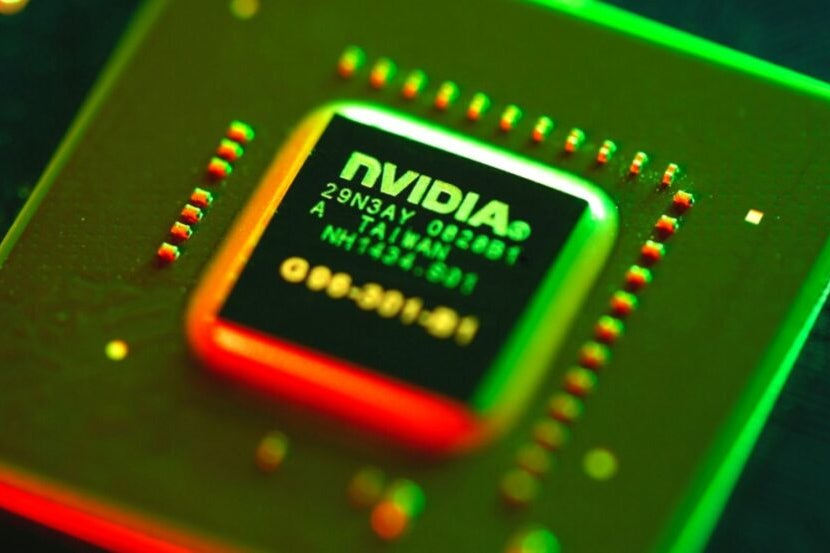Nvidia Under Scrutiny: Allegations of Chip Smuggling to China Unfold in Singapore
In a significant development that has captured global attention, three individuals have been charged in Singapore for allegedly smuggling Nvidia chips to China. This case raises serious concerns amid the backdrop of escalating US export restrictions aimed at curbing technology transfers to China. As the tech industry grapples with intensified scrutiny, the implications for global supply chains and international relations cannot be overstated.
The Allegations Explained
The charges against the three individuals stem from a complex operation allegedly designed to bypass stringent export controls imposed by the United States. Nvidia, a leading manufacturer of graphics processing units (GPUs) and artificial intelligence (AI) chips, is at the center of this storm. The US government has been increasingly vigilant about technology exports, particularly those that could bolster China’s military and technological capabilities.
According to authorities, the accused were involved in a scheme that facilitated the unauthorized shipment of Nvidia chips to China, where demand for advanced semiconductor technology continues to surge. These chips are crucial for various applications, including AI, gaming, and data processing, making them highly sought after in the global market.
Impact of US Export Controls
The US government has implemented several measures in recent years to limit the export of sensitive technologies to China. This includes:
- Export Licensing Requirements: Certain technologies require a license before they can be shipped abroad, especially to countries deemed a security risk.
- Entity Lists: Companies and individuals can be placed on lists that restrict their access to US technologies, significantly impacting their operational capabilities.
- Trade Tariffs: Increased tariffs on goods imported from China have added another layer of complexity to trade relations.
These measures have been put in place to protect national security and maintain technological superiority. However, they have also created a high-stakes environment where individuals may resort to illicit activities to meet the growing demand for advanced chips.
The Role of Nvidia in Global Technology
Nvidia has emerged as a powerhouse in the tech sector, particularly in the areas of AI and machine learning. The company’s GPUs are integral to various industries, including gaming, healthcare, and autonomous vehicles. With its chips being indispensable for cutting-edge technology, the stakes are high, and the company has become a focal point in the ongoing geopolitical tensions between the US and China.
As Nvidia continues to innovate and expand its market reach, the pressure from regulatory bodies and governmental authorities only intensifies. The recent allegations of chip smuggling are a stark reminder of the fragility of the global supply chain and the potential consequences of bypassing regulatory frameworks.
Global Supply Chain Implications
The allegations against the three individuals not only spotlight the actions of those directly involved but also raise broader questions about the integrity of global supply chains. The tech industry is interconnected, and disruptions in one area can have cascading effects across the globe.
- Increased Scrutiny: Companies may face heightened scrutiny regarding their supply chain practices, especially those dealing with sensitive technologies.
- Regulatory Compliance: Firms will need to invest more in compliance measures to ensure adherence to export laws, which may increase operational costs.
- Market Dynamics: As companies navigate the complexities of international trade, market dynamics may shift, leading to changes in pricing and availability of certain technologies.
In this context, companies must balance the need for innovation with the requirement to operate within legal frameworks. The recent charges against the individuals in Singapore serve as a cautionary tale for others involved in the tech industry.
The Future of Tech and International Relations
The unfolding situation raises important questions about the future of technological collaboration and competition among global powers. As tensions grow, particularly between the US and China, the tech sector may find itself at the forefront of a new Cold War, characterized by fierce competition for technological dominance.
To navigate this complex landscape, tech companies may need to consider several strategies:
- Diversification: Companies should explore new markets and partnerships to reduce dependence on any single country or region.
- Investment in Compliance: Companies must prioritize compliance with international regulations to avoid legal pitfalls and protect their reputations.
- Innovation and R&D: Continued investment in research and development can help firms stay ahead in the rapidly evolving tech landscape.
Conclusion
The allegations of chip smuggling involving Nvidia highlight the intricate relationship between technology, trade, and international relations. As the global community grapples with the implications of these events, it becomes increasingly clear that the tech industry must adapt to a new reality shaped by geopolitical tensions and regulatory scrutiny.
For Nvidia and similar companies, the path forward will require a careful balance of innovation, compliance, and strategic partnerships. As the dust settles on this case in Singapore, the tech industry will be watching closely, aware that the stakes have never been higher in the race for technological advancement.
See more Future Tech Daily

